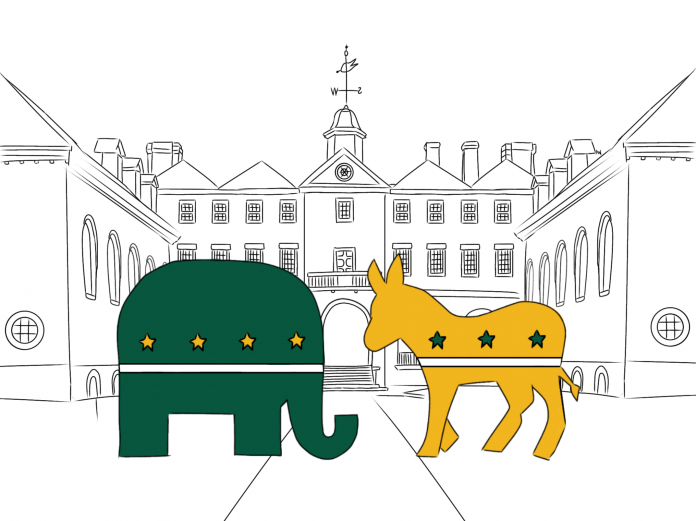The Flat Hat is starting a new series that seeks to explore topics in local, state and national politics at depth in addition to our existing coverage of Williamsburg and College of William and Mary politics. First, political correspondent Maggie Manson ’22 considers COVID-19’s impacts on primary elections, as well as general election debates this fall.
The United States now has the highest number of reported cases of the COVID-19 virus globally, with almost 700,000 reported cases and nearly 33,000 fatalities as of April 18. With all of the confusion and chaos surrounding the rapid spread of the virus on a national and global scale, the American political sphere is rapidly changing, leaving an unclear view as the country approaches November’s presidential election.
Since many of our public institutions are in a period of suspension or flux, the status of the 2020 presidential primary elections also appears to be uncertain.
The following states have postponed in-person primary elections or caucuses that were supposed to take place during the month of April: Connecticut, Delaware, Georgia, Hawaii, Louisiana, Maryland, New York, Pennsylvania, Rhode Island and Wisconsin. Alaska, Ohio and Wyoming initially had primaries scheduled for April that were rescheduled and as of now, will be held at later dates this month.
The Democratic field has significantly narrowed following Super Tuesday last month, and former Vice President Joseph R. Biden emerged as the party’s nominee after Sen. Bernie Sanders stepped down last week.
Biden’s success followed the endorsements of a moderate coalition of former candidates and rivals such as Sens. Amy Klobuchar, Cory Booker, Kamala Harris and former South Bend, Ind. Mayor Pete Buttigieg. Although primary elections will no longer determine the fight between Sanders and Biden, the discussion over how to hold the elections provides insight into possible problems with the 2020 elections, like low voter turnout.
“Biden’s anointment as the presumptive Democratic nominee signifies no further Democratic primary debates, but the future of general election debates between Biden and President Donald Trump is uncertain.”
Biden’s anointment as the presumptive Democratic nominee signifies no further Democratic primary debates, but the future of general election debates between Biden and President Donald Trump is uncertain. The current dates selected for fall debates are Sept. 29, Oct. 15 and Oct. 22, while the vice presidential debate between Vice President Mike Pence and Biden’s vice presidential nominee is scheduled for Oct. 7. Depending on COVID-19’s severity this autumn, these debates may proceed normally, or they may be run similarly to the Democratic Party’s March 15 primary debate, which was held without a studio audience and with necessary distancing measures. The challenges posed to civic life during the COVID-19 era will have — and have already had — unprecedented consequences for the presidential election.
For more information on potential primary delays in your state, go to VOTE411 or your state department of elections site.


[…] Source […]